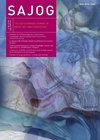妊娠相关性败血症患者血清降钙素原的病例对照研究
IF 0.4
Q4 OBSTETRICS & GYNECOLOGY
引用次数: 5
摘要
背景降钙素原(PCT)是一种已确定的败血症,特别是细菌性败血症的标志物,但其在诊断妊娠相关败血症(PAS)中的应用相对未被探索。目标。研究PCT是否可用于我们研究人群中PAS的诊断,以及诊断的合适值。方法。该研究纳入了40名患有PAS的孕妇、流产后和产后妇女,采用全身炎症反应综合征标准进行鉴定。排除患有高血压疾病、胎膜早破、严重创伤、肝硬化和肺部或甲状腺恶性肿瘤的患者。40名健康足月孕妇接受无菌尿液培养作为对照。PCT水平在入院时获得,并在两组之间进行统计学比较。PAS的严重程度和培养阳性率也进行了评估。结果。30例患者出现严重PAS。55%(n=22)的受试者总体文化阳性。培养物阳性患者的PCT水平(3.03μg/L)高于培养物阴性患者(1.77μg/L),但没有达到统计学意义(p=0.235)。PAS患者的平均(标准差)PCT为2.46(0.56)μ/L,而健康对照组为0.091(0.019)μg/L。这种差异具有统计学意义(在适当的临床环境中,0.125μg/L被认为是PAS诊断的临界水平。此外,严重PAS与非严重PAS的平均PCT水平差异显著。本文章由计算机程序翻译,如有差异,请以英文原文为准。
Serum procalcitonin in pregnancy-associated sepsis: A case control study
Background. Procalcitonin (PCT) is an established marker for sepsis, particularly bacterial, but its use in diagnosing pregnancy-associated sepsis (PAS) is relatively unexplored. Objective. To investigate whether PCT could be used for the diagnosis of PAS in our study population, and what the appropriate values might be for the diagnosis. Methods. The study included 40 pregnant, post-abortal and postpartum women with PAS, identified using systemic inflammatory response syndrome criteria. Patients with hypertensive disorders, premature rupture of membranes, severe trauma, liver cirrhosis and lung or thyroid malignancies were excluded. Forty healthy term pregnant women with sterile urine cultures were taken as controls. PCT levels were obtained at admission and statistically compared between the groups. Severity and culture positivity in PAS were also assessed. Results. Severe PAS was present in 30 patients. Overall culture positivity was seen in 55% ( n =22) of subjects. Culture-positive patients had higher PCT levels (3.03 μg/L) compared with the culture-negative (1.77 μ/L), though this did not reach statistical significance ( p =0.235). Mean (standard deviation) PCT in PAS patients was 2.46 (0.56) μ/L, while in healthy controls it was 0.091 (0.019) μg/L. This difference was statistically significant ( p 0.125 μg/L is suggested as the critical level for PAS diagnosis in appropriate clinical settings. Additionally, mean PCT levels differed significantly in severe v. non-severe PAS.
求助全文
通过发布文献求助,成功后即可免费获取论文全文。
去求助
来源期刊

South African Journal of Obstetrics and Gynaecology
Medicine-Obstetrics and Gynecology
CiteScore
0.40
自引率
0.00%
发文量
5
审稿时长
15 weeks
期刊介绍:
The SAJOG is a tri-annual, general specialist obstetrics and gynaecology journal that publishes original, peer-reviewed work in all areas of obstetrics and gynaecology, including contraception, urogynaecology, fertility, oncology and clinical practice. The journal carries original research articles, editorials, clinical practice, personal opinion, South Africa health-related news, obituaries and general correspondence.
 求助内容:
求助内容: 应助结果提醒方式:
应助结果提醒方式:


